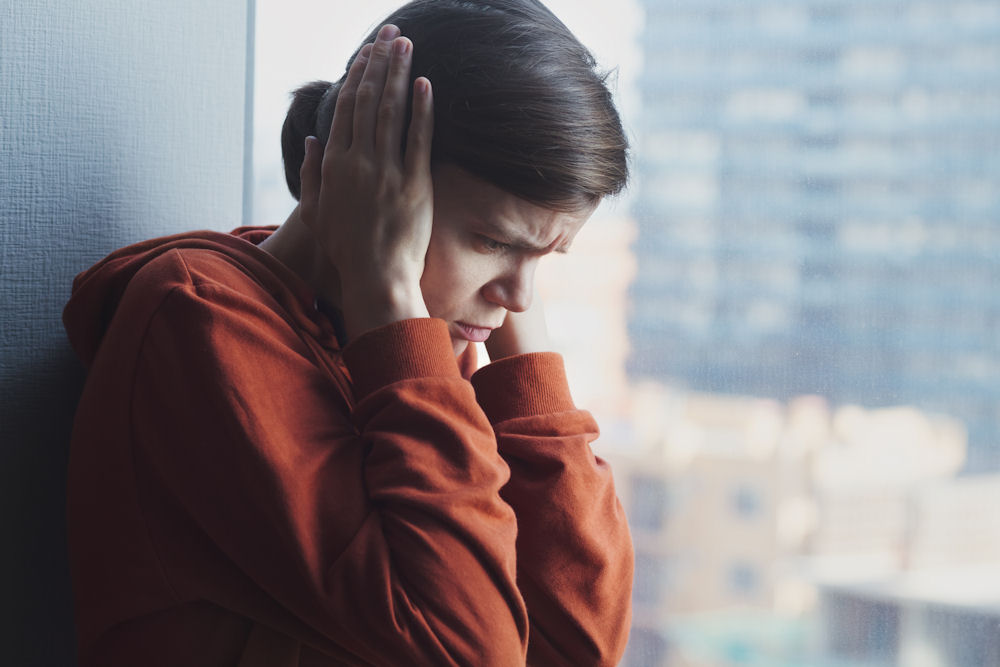Schizophrenia and Addiction Treatment in Florida
I hear a voice in my head. So do you, if you have a conscience. That little voice in your head is not, as is commonly and falsely assumed, an indicator that you are schizophrenic or crazy. People diagnosed with schizophrenia commonly hear multiple voices that are male, vulgar, repetitive, commanding, and interactive, where the person asks the voice a question and receives an answer of sorts. If the voice in your head talks back, that is a problem.
The onset of mental illness, particularly for people diagnosed with schizophrenia, is a very stressful time for them and the people around them. Lacking proper education or exposure to information about this illness leads many of these people to turn to drugs and alcohol as a coping mechanism, which leads to bigger problems, such as an earlier presentation of psychotic symptoms, induced psychotic relapse, or an increased severity in symptoms.
People with co-occurring schizophrenia and substance use disorders (SUD) experience increased cognitive impairment, very intense psychosis, and higher rates of needing emergency services, all while being more likely to face incarceration and experience legal troubles.
Read on to find out all about schizophrenia, the connection between schizophrenia and addiction, and which treatments are available at Ambrosia Behavioral Healthcare in West Palm Beach, Port St. Lucie, and Singer Island, Florida.
Schizophrenia typically develops in the late teen years or early adulthood and requires lifelong treatment. The exact causes of schizophrenia are not known, but schizophrenia can be diagnosed by a mental health professional based on the person’s symptoms, medical history, and psychological evaluation. Treatment is varied, depending on the person in need, and the goal of treatment is to reduce the severity and frequency of symptoms and improve the quality of life of the person with this condition
What Are The Different Types of Schizophrenia?
- Paranoid Schizophrenia. Characterized by delusions and hallucinations that are often related to persecution, conspiracy, or grandiosity.
- Disorganized schizophrenia. This type is marked by disorganized thinking, speech, and behavior, making it hard for the person to function normally daily.
- Catatonic Schizophrenia. This type involves abnormal movements and postures that can range from excessive activity to complete immobility, combined with signs of echolalia (repeating what others say) or echopraxia (mimicking what others do).
- Residual Schizophrenia. This type refers to a phase of schizophrenia where the person has had a previous psychotic episode but currently has only mild or no symptoms.
- Undifferentiated Schizophrenia. This is a catch-all category for people who show schizophrenic symptoms that do not fit into any of the other types. Such people may have a mix of positive, negative, and disorganized symptoms that vary in severity and frequency.
Schizophrenia and Addiction Statistics
A few statistics about schizophrenia and addiction in Florida from 2020 to 2023 are:
- The prevalence of schizophrenia in Florida was estimated to be 0.6% in 2020 (about 126,000 people), which is slightly lower than the national average of 0.7%.
- The prevalence of substance use disorder in Florida was estimated to be 8.5% in 2021 (about 1.8 million people) which is slightly higher than the national average of 8.1%3.
- The co-occurrence of schizophrenia and substance use disorder in Florida was approximately 25.6% in 2020 (around 32,000 people) which is close to the national average of 25.8%2.
- The most common substances used by people with schizophrenia in Florida in 2020 were alcohol (17.8%), marijuana (12.9%), and cocaine (6.4%).
What Are The Signs and Symptoms of Schizophrenia?
- Positive symptoms distort your perception of reality.
- Negative symptoms diminish or impair your normal functioning.
- Cognitive symptoms affect your thoughts, memory, and attention span.
Some of the most common signs and symptoms of schizophrenia are:
- Hallucinations seeing, tasting, smelling, or hearing things that are not there
- Delusions: Possessing incorrect beliefs that are not based on reality, such as paranoia, feeling controlled, or delusions of grandeur
- Disorganized speech: facing difficulties with clear or logical communication, or using words that do not make sense
- Disorganized behavior: acting inappropriately, bizarrely, or unpredictably, or inability to complete tasks
- Lack of emotion: deadpan expressions or experiencing inappropriate emotions
- Lack of motivation: having no interest or eagerness for daily activities, or being unable to start or finish them without help
- Lack of social interaction: withdrawing into a shell, or having severe struggles with forming or maintaining relationships
- Difficulty concentrating: having trouble paying attention, focusing, or following instructions
- Difficulty remembering: struggling with recalling information or events, or learning new things
- Difficulty planning: having trouble defining goals, making decisions, or solving problems

What Are The Causes/Risk Factors for Schizophrenia?
- A family history of schizophrenia or certain genetic variations may make you more vulnerable to developing the disorder. Not everyone who has these genes will develop schizophrenia, though, and not everyone who has schizophrenia has these genes.
- Brain and body. Various abnormalities in the brain structure, function, or chemistry are thought to be connected with schizophrenia. For example, a few people with schizophrenia have enlarged brains.
- Environment. Stressful or traumatic events, such as abuse, violence, or loss, may trigger or worsen the symptoms of schizophrenia in certain people. Illicit substances, such as cannabis, cocaine, or amphetamines, may also increase the risk of psychosis or schizophrenia, particularly in already vulnerable people.
How do Schizophrenia and addiction Co-Occur?
There are several potential reasons why schizophrenia and addiction can co-occur, such as
- Genetic factors. Certain genes possibly increase the risk of developing both schizophrenia and addiction or make you more sensitive to the effects of substances.
- Environmental factors. Experiencing stressful or traumatic events, such as abuse, violence, or natural disasters can worsen the symptoms of schizophrenia and lead you to experimenting with substances as a coping mechanism.
- Brain factors. Dopamine, serotonin, or glutamate imbalances in your brain chemistry may be the culprits in developed schizophrenia and addiction.
- Self-medication. People with schizophrenia sometimes use substances in vain attempts to reduce or escape from their distressing symptoms, such as hallucinations, delusions, or negative emotions. This tends to have the opposite effect, as substances can aggravate psychotic symptoms or interfere with the effectiveness of medication.
- Recreational use. People with schizophrenia may use substances for pleasure, out of curiosity, or as a result of social pressure. This, however, makes them more vulnerable to developing addictions and the complications of co-occurring disorders.
Alcohol Use Disorder (AUD) is the most common dual diagnosis affecting approximately 1 in every 4 adults with schizophrenia. Alcoholism can have negative effects on the symptoms, such as:
- Worsening or triggering psychotic symptoms
- Interfering with the effectiveness or adherence of antipsychotic medication
- Increasing the risk of depression, suicide, homelessness, violence, incarceration, and hospitalization
- Reducing the quality of life and social life
Marijuana affects the brain and can cause psychotic symptoms, such as hallucinations and delusions. These symptoms can trigger schizophrenia in people with pre-existing conditions and may also worsen symptoms.
Opioids are drugs that act on the opioid receptors in the brain and produce pain relief, euphoria, and sedation and can increase the risk of developing schizophrenia.
Cocaine is a powerful and highly addictive stimulant that has various effects on the brain and mental health. Cocaine abuse can increase the risk of developing schizophrenia, or exacerbate symptoms of pre-existing mental illness. A few side effects of cocaine on schizophrenia are:
- It increases the positive symptoms of schizophrenia, such as delusions, hallucinations, and disorganized thinking by affecting dopamine and glutamate levels, two neurotransmitters that are involved in schizophrenia.
- Reducing the effectiveness of antipsychotic medications used to treat schizophrenia.
- Making it more difficult for people with schizophrenia to cope with their condition and follow their treatment plan.
- Worsening the negative symptoms of schizophrenia, such as lack of emotion, social withdrawal, and anhedonia.
Methamphetamine, or meth, is a highly addictive stimulant that can have various effects on a person’s physical and mental health. The effects of meth on schizophrenia are very similar to those of cocaine.
Heroin is a highly addictive opioid that worsens psychotic symptoms in people who are genetically predisposed to schizophrenia. Heroin’s effect on schizophrenia is similar to both meth and cocaine, making it clear that using any illicit substances will make treating both disorders more difficult, as well as running the risk of hospitalization or death.
How Are Schizophrenia and Addiction Treated?
- Medications. Antipsychotic drugs can help reduce the symptoms of schizophrenia, like hallucinations, delusions, and disorganized thinking. Medications are also used to help with the withdrawal and cravings of SUD, as well as preventing or reversing the effects of an overdose. Examples of medications used for addiction include methadone, buprenorphine, naltrexone, and naloxone.
- Psychotherapy. Psychotherapy (talk therapy) helps people with schizophrenia and addiction understand the intricacies of their conditions, learn how to cope with their emotions, and develop healthier coping skills. Some addiction therapy services include cognitive-behavioral therapy (CBT), motivational interviewing (MI), and family therapy.
- Recovery education. This helps people with schizophrenia and addiction learn more about their conditions, what effects substances have on their brain and body, and the benefits of recovery. Some examples of recovery education programs are psychoeducation, relapse prevention, and dual recovery anonymous.
- Self-help groups. Self-help groups provide people with schizophrenia and addiction with peer support, mutual aid, and social interaction. These groups allow people to share their experiences, challenges, and successes with others who have similar conditions. A few examples of open self-help groups are Alcoholics Anonymous (AA), Narcotics Anonymous (NA), and Schizophrenics Anonymous (SA).
Schizophrenia and addiction are treatable conditions that require a comprehensive and integrated approach. Combining the above treatment methods will give you the absolute best tools available to battle and overcome your condition and recover control over your life.
Ambrosia Behavioral Health Can Help You Get Your Life Back on Track

Addiction can overcome even the strongest-willed and most straightforward people. Schizophrenia can affect anyone it chooses to, and if you or someone you know are struggling with the above issues, it is nothing to be ashamed of. Help is available for you or your loved one.
Early diagnosis of schizophrenia, other mental health issues, or addictions will have a dramatic impact in helping you recover and cope. Contact us today to find out more about how we can help you, speak with our admissions team about enrolling in a program, or voice any concerns that you may have. We are here for you.

Dr. Alam is an internationally renowned psychiatrist with academic affiliations with Northwestern University and University of Illinois, Chicago where he completed his residency training. He has been a principal investigator for over forty studies and has been involved in research leading to the approval of most psychiatric medications currently on the market. He is the founder of the Neuroscience Research Institute which continues to conduct research on cutting edge medication and interventional psychiatry. Dr. Alam is a Distinguished Fellow of the American Psychiatric Association and the American Society of Addiction Medicine. He has won several awards and has been featured extensively on radio and television.



